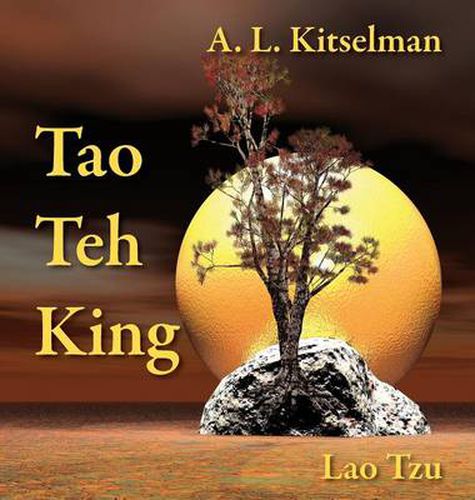Readings Newsletter
Become a Readings Member to make your shopping experience even easier.
Sign in or sign up for free!
You’re not far away from qualifying for FREE standard shipping within Australia
You’ve qualified for FREE standard shipping within Australia
The cart is loading…






This title is printed to order. This book may have been self-published. If so, we cannot guarantee the quality of the content. In the main most books will have gone through the editing process however some may not. We therefore suggest that you be aware of this before ordering this book. If in doubt check either the author or publisher’s details as we are unable to accept any returns unless they are faulty. Please contact us if you have any questions.
Since the 1970s, the influence of oriental philosophy, in particular the Buddhist tradition, in the field of psychotherapy has been quite profound. Taoism has not had the same impact on modern psychotherapeutic models. Yet, as early as 1936, Alva LaSalle Kitselman who was, at that time, studying oriental languages at Stanford University, with a particular emphasis on Sanskrit, created his own version of the classic text of the Taoist tradition - the book of Lao Tzu entitled the Tao Teh King. His version of this classic was, as he said, a restatement rather than being a new translation from the ancient Chinese. After its publication, and through a chance encounter with one of the librarians at Stanford, he began to realise that Taoism and Taoist philosophy could be used as a form of therapy, specifically in the form he called ‘non-directiveness’ or ‘non-directive therapy.’ In the 1950s Kitsleman published an audio lecture on his early experiences using the Tao Teh King entitled ‘An Ancient Therapy’. In the lecture he compared and contrasted his application of Taoist philosophy in psychotherapy with the ‘client centred therapy’ approach of Carl R. Rogers. This new publication of Kitselman’s version of the Tao Teh King and the story of his discovery will hopefully ignite a real interest in combining the wisdom of this classic Taoist text with modern psychotherapeutic methodologies. A. L. ‘Beau’ Kitselman was a remarkable man, a genius whose interests ranged from mathematics, science and computer programming to exploring the potential of the human mind.
$9.00 standard shipping within Australia
FREE standard shipping within Australia for orders over $100.00
Express & International shipping calculated at checkout
This title is printed to order. This book may have been self-published. If so, we cannot guarantee the quality of the content. In the main most books will have gone through the editing process however some may not. We therefore suggest that you be aware of this before ordering this book. If in doubt check either the author or publisher’s details as we are unable to accept any returns unless they are faulty. Please contact us if you have any questions.
Since the 1970s, the influence of oriental philosophy, in particular the Buddhist tradition, in the field of psychotherapy has been quite profound. Taoism has not had the same impact on modern psychotherapeutic models. Yet, as early as 1936, Alva LaSalle Kitselman who was, at that time, studying oriental languages at Stanford University, with a particular emphasis on Sanskrit, created his own version of the classic text of the Taoist tradition - the book of Lao Tzu entitled the Tao Teh King. His version of this classic was, as he said, a restatement rather than being a new translation from the ancient Chinese. After its publication, and through a chance encounter with one of the librarians at Stanford, he began to realise that Taoism and Taoist philosophy could be used as a form of therapy, specifically in the form he called ‘non-directiveness’ or ‘non-directive therapy.’ In the 1950s Kitsleman published an audio lecture on his early experiences using the Tao Teh King entitled ‘An Ancient Therapy’. In the lecture he compared and contrasted his application of Taoist philosophy in psychotherapy with the ‘client centred therapy’ approach of Carl R. Rogers. This new publication of Kitselman’s version of the Tao Teh King and the story of his discovery will hopefully ignite a real interest in combining the wisdom of this classic Taoist text with modern psychotherapeutic methodologies. A. L. ‘Beau’ Kitselman was a remarkable man, a genius whose interests ranged from mathematics, science and computer programming to exploring the potential of the human mind.